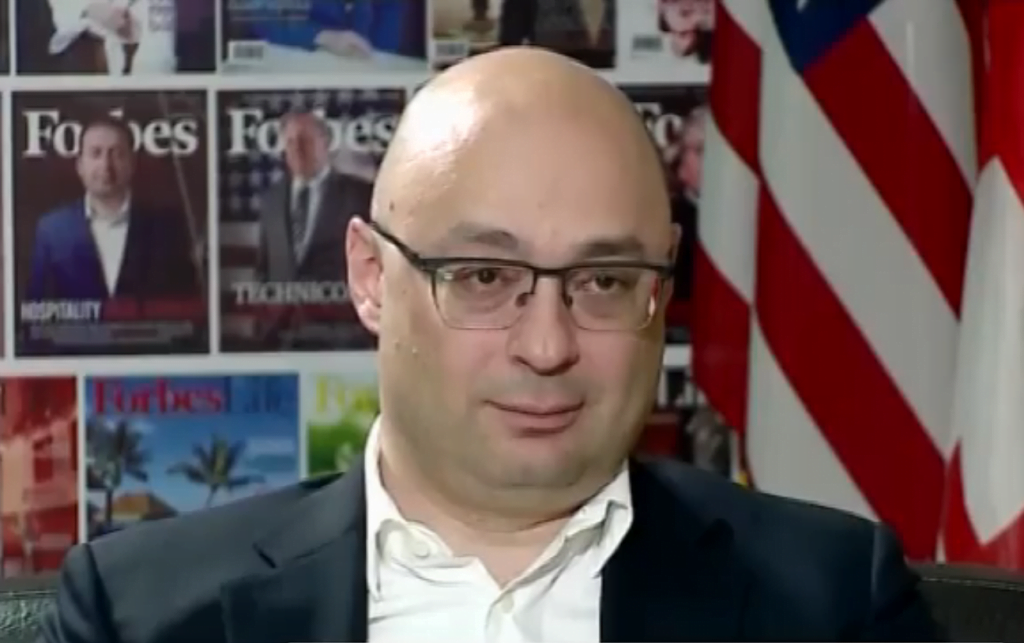Former Minister of Economy and Sustainable Development, Giorgi Kobulia, spoke on May 5 on details of his dismissal from Prime Minister Mamuka Bakhtadze’s cabinet last month.
In his interview with the Forbes Week, a business news program aired by Rustavi 2 TV every Sunday, Kobulia said: “the real reason for my departure was that I came to realize that we did not have convergence of visions and principles that I thought we had agreed in the beginning.”
Kobulia confirmed reports that GD leaders insisted on his resignation before deciding to fire him. “There was a request that I resign, but I did not do it because until the very last moment I had hoped that I would be able to convey my visions to the ruling party and convince them.”
Asked who he was talking to on the matter, the former economy minister said: “I was primarily communicating with the Prime Minister, but, of course, we also went through the issue with the ruling party leader, [Bidzina Ivanishvili].”
Kobulia refrained from giving additional details on what he termed as “conflict” and “dispute” with GD leaders, but said “there was a set of decisions that I thought were more politically-driven than result-oriented, and I disagreed with these decisions and refused to implement them.”
“Some of these decisions were also politically harmful for the ruling party and such decisions were particularly unacceptable for me… It was as if we were shooting in our own feet… “[At the same time,] there was a set of decisions that I considered right, but I had difficulties implementing them because I was lacking support,” he added.
Kobulia also touched upon the state of Georgia’s economy, saying the pace of its development is satisfactory compared to other countries of the region. He, however, stressed that the 4%-5% GDP growth is produced “largely by inertia,” and is driven by “a very low starting point and relatively liberal legislation.”
“Georgian economy has a much greater potential and if we manage to use this potential to the maximum extent possible we can reach from 7% to 9% growth rate, we can practically double our economic growth,” he added.
For that, according to the ex-minister, the country needs to enhance effectiveness of state institutions, including with respect to the quality and the pace of decision-making. He also said the authorities need to improve mechanisms for investor support and focus on sectors where Georgia enjoys competitive advantage, including mineral resources and power generation.
This post is also available in: ქართული (Georgian) Русский (Russian)

